- Home
- Robert B. Parker
Walking Shadow s-21 Page 3
Walking Shadow s-21 Read online
Page 3
Susan glanced at me and said Shut up, soundlessly.
"Mr. Spenser initially came to us via Susan, in regard to a stalking incident. He is a former police detective, now in private practice. And he has agreed to provide professional counsel in this dreadful business. Mr. Spenser, perhaps you could initiate the discussion."
I felt like I should have a pointer. I stayed seated.
"This may not be a routine murder," I said.
"Most murders don't happen in a crowded theater, for instance. But if it turns out to be motivated by the routine things love and money then the cops probably will do better with it than I can. They have manpower. But they also have other things to worry about. And if this doesn't solve quickly, they will get distracted. I won't. What I can do for you is worry about this exclusively."
Rikki Wu raised her hand. She looked about forty, wearing a tight little black dress, sapphire earrings, a sapphire and diamond necklace, and a wedding ring with a diamond as big as the Ritz.
She was expertly made up. Her mouth was wide. She had big, dark eyes. And she appeared to take excellent care of herself.
"Yes, Ma'am."
"Are any of the rest of us in danger?"
"I don't know," I said.
"What are you going to do about that?"
"Try to catch the killer."
"How can we help?" she said.
"Tell me what you know," I said.
"I don't know anything."
I smiled at her.
"Don't be so hard on yourself," I said.
"Was there any love interest in Craig Sampson's life?"
"I wouldn't know," she said.
I looked at Christopholous. He shook his head.
"Girlfriend?"
Christopholous shook his head.
"Boyfriend?"
"I don't know," Christopholous said.
Rikki Wu frowned. Things were moving too fast for her.
"I don't see why you're asking these questions. Are you implying that Craig was gay?"
"I'm asking," I said.
"Well, why are you asking? What has that to do with his death?"
"I don't know," I said.
"I don't know if he's gay. I don't know if his sexuality had anything to do with his death. If he has a boyfriend or a girlfriend they might be someone I should talk to.
If he has neither, why not?"
Rikki Wu was spirited.
"Well, I think it's none of your damned business," she said.
"Yeah, actually, it is. This is a murder investigation. We don't know anything but the fact of the murder. We have to find out everything else, and the way to find it out is to ask questions. I have no facts. I'm looking for facts. So I ask questions. Eighty, ninety percent of the facts you get by asking questions are probably useless, but there's no way to know that except to ask."
"Well, I think you are going about it very crudely."
"After you talk to DeSpain, you'll think I was Jascha Heifetz," I said.
"How about money? He in debt? He have a lot?"
Nobody had anything to say.
"Dope?"
Rikki Wu had had enough.
"This is indecent," she said. Her face was flushed and her eyebrows were drawn down into the kind of pretty frown that had doubtless gotten her the diamond.
"Poor Craig is the victim. You act as if he were the guilty party."
"Oh, for cris sake Rikki," Susan said.
"People are usually killed for reasons. Those reasons often have to do with sex and money."
"Well, I don't like it," Rikki said.
Her shiny lower lip was pushed out slightly, which meant I was supposed to jump across the table and lie on the floor at her feet.
I assessed the table and decided it was too wide.
Susan said, "This is not about you, Rikki."
Rikki looked startled.
"I don't wish to talk about it," Rikki said.
"Jimmy?"
Christopholous had been gazing off into the middle distance, probably thinking about the late plays of the Wakefield Master. He refocused slowly and smiled lovingly at Rikki Wu.
"Darling," he said.
"You should do whatever you want to do."
"I'm leaving," she said.
"Oh, Rikki," Christopholous said, "don't do that. We'll all be devastated. Somebody, get Rikki a lovely glass of champagne."
Somebody offered her a glass. The storm passed. Rikki smiled at Christopholous, accepted her lovely glass of champagne, and tacitly agreed to stay through the meeting. The red-faced guy who had been resting his eyes let out a sort of blubbery snort and his head jerked and he looked a little puzzled for a moment about where he was. He spotted his champagne glass, still partially full, and picked it up and drained it, then he settled back in his chair and tried to look as if he knew what was going on. It was a look I had often worked on myself.
"Okay," I said.
"Here's another question. What the hell was the play about?"
There was the usual silence.
"It's not a frivolous question," I said.
"The killing could be connected to the play."
"That's ridiculous." It was Lou Montana, the Director, portly and red, wearing a safari jacket.
"An actor getting shot on stage while wearing motley and singing "Lucky in Love' is ridiculous," I said.
"Well, what was your response to the play?" Lou Montana said, and his voice was ominous. He must have scared hell out of the apprentice actors.
"I thought it a pretentious mishmash about appearance and reality."
"Art is not 'about' anything," Lou said tiredly, putting large verbal quotation marks around the about.
"It is movement and speech in space and time."
"Thank you," I said.
"I didn't expect you to understand," Lou said.
"Me either."
It went like that for the rest of the evening. The board was important. And it was determined to prove it to me. Mercifully, the wine ran out before I did, and the meeting ended. I didn't know anything I hadn't known before. Maybe less.
We held hands as we walked to our car. The wet-empty street was implacably seedy in the unforgiving glare of the mercury street lamps. Susan glanced up at me with a smile.
"You don't want to take the security bus up the hill?" Susan said.
"I'm armed," I said.
"Let's risk it to the car."
As we walked, Susan bumped her head gently on my shoulder.
I heard her laugh a little.
"What's funny," I said.
"Jascha Heifetz?" she said.
I shrugged.
"Sometimes I say Yehudi Menuhin."
CHAPTER 6
Christopholous' office was mostly blond wood and exposed red brick. The laminated ceiling beams, the window casements, and the wide-board yellow pine floor were all stained about the color of a palomino horse. Christopholous sat behind a mission oak desk that matched the rest of the room. He was wearing a tweed jacket, and his wide, round face above the graying beard was tanned and healthy-looking.
"First let me apologize for the board," Christopholous said.
"Being smart isn't always the primary function of a board," I said.
Christopholous smiled.
"Quite true," he said.
"Willingness to raise or donate money counts for a lot."
"Counts for approximately everything, I would think."
Christopholous kept his smile but made it wry.
"The arts are a very precarious proposition these days. Reagan and Bush killed us. And dear Jesse Helms, who suspects Little Women of having a lesbian agenda."
"Grants dried up, have they?"
"In the name of thrift," Christopholous said.
"They still subsidize fucking tobacco, which is a fucking poison, excuse my French, but they save money by cutting back on the arts."
"That's 'cause they don't grow arts in North Carolina," I said.
"Sure, I
know that. But they pretend to believe that theater and other performing arts should be self-supporting. For cris sake Shakespeare was subsidized. If the performing and visual arts must support themselves, then they will be required to be popular.
Television is what you get when you try for commercial art. Plays like Handy Dandy would never be put up."
I smiled.
"I know. You feel that would be no loss. To tell you the truth, and I'd deny publicly that I ever said this, I don't like the play either. But it is an attempt to grapple artistically with some fundamental issues, and, however clumsily rendered, it is an attempt that needs to be encouraged."
"Especially when you've got a hole in your schedule," I said.
"Especially then. I'm not a holy person. Had there been a better play available, we'd have put it up. I'm trying to make a living, and see to it that the company makes a living, and draw an audience, and raise money to make this thing work. It means I put on things I don't like, and kiss asses, and tolerate ignoramuses. On the other hand, we don't have Cats in for an extended run."
"That's something to be grateful for," I said.
"Real theater, any art, speaks the otherwise inarticulate impulses of the culture," Christopholous said.
"Art energizes the collective consciousness. The arts are more vital to the well-being of a society than missiles or Medicare. Do you know that English theater grew out of early religious ritual?"
Christopholous was a hyperbolic shmoozer, and a remorseless fund-raiser, and he made me tired. But he was also one of the major thinkers about theater in the world. I had read a couple of his books, and the voice from the books was the voice he was using now.
"Quern Quaeritis," I said.
I was showing off again, like when I'd said "dramaturge." And it worked again. Christopholous looked at me as if I had just levitated.
"You are an odd goddamned detective," he said.
"I read a lot on stakeouts," I said.
"Let's talk a little about the play."
"Handy Dandy?"
"Yeah. If you talk slowly, I'll be able to follow you."
"I'm not buying that pose," Christopholous said.
"You know a lot more than you look like you know."
"Be hard to know less," I said.
"What do you think is in this play that stirs up so much opposition."
"Albeit crudely," Christopholous said, "it challenges everyone's preconceptions. Not just the preconceptions of right or left, of racism or humanism, but all. If you come in with compassionate preconceptions about women or blacks, it destroys them. If you come in with hostile preconceptions about women or blacks, it destroys them. It challenges people to consider each human experience directly, without an historic framework."
"An historic framework is not useless," I said.
"Certainly not," Christopholous said.
"But Leonard would argue that you must first tear down the jerry-rigged facade, before you can begin to build a sound framework. Leonard O annoys everyone: secular humanists, fundamentalist Christians, conservatives, liberals, libertarians, blacks, whites, women, men, Jews, homosexuals, heterosexuals, bisexuals, Hari Krishnas, the AMA, you name it."
"Leonard's the playwright?" I said.
"Yes."
"Is that O?" I said, "as in say can you see?" or as in 'story of '?"
"The latter."
"Is it his real name?" I said.
"I doubt it."
"I'll need to talk with him."
"That should be interesting," Christopholous said.
CHAPTER 7
I sat in DeSpain's office in the back corner of the squad room in the neat, square, one-story, red-brick Port City Police Station.
DeSpain had his coat off and his gun unholstered and lying on the desk next to the phone.
"Damn thing gets me in the ribs every time I lean back," he said.
"Trouble with the nines," I said.
"They're not comfy."
DeSpain shrugged the way a horse does when a fly lands on him.
"You got something on the Sampson killing, or you just in to chew the fat?"
"I was hoping you had something."
"Here's everything I got," DeSpain said.
"Killer was probably male. There's no agreement on what he was wearing, except that it was black. Had on some kind of a black mask with eye holes cut into it. He came in during the play and stood at the top of the aisle maybe ten minutes. People figured he was part of the play. The piece might have been a target gun, though to tell you the truth none of the eyewitnesses know a handgun from their pee pee.
What everybody agrees is, he fired one shot and put the gun away, and walked out. Nobody saw where he went. ME took a.22 long out."
DeSpain picked up his gun and aimed it over my shoulder.
"Bingo," he said.
"Through his heart."
"Maybe the guy's a shooter," I said.
"Sort of showing off with the.22."
"There was a fad a while back like that," DeSpain said.
"Mob guys were using.22s."
"Or maybe it's the only gun he could get his hands on."
"And it was a lucky shot," DeSpain said.
"What do you know about the victim?"
"What is this, Travelers' fucking Aid?" DeSpain said.
"Hey, I'm telling you all I know," I said.
"You haven't told me shit," DeSpain said.
"True, but it's all I know."
DeSpain shook his head and turned the gun on his desk in a slow circle with his finger through the trigger guard.
"Don't know much more than you do. Studied acting in New York. Was in some plays I never heard of in places I never heard of. Got a job up here. Kept to himself. Stayed out of trouble. Sound like we're closing in?"
"Prints?"
"No record of him ever being fingerprinted."
"So what do you think?" I said.
"I think neither one of us knows shit," DeSpain said. He kept the gun turning slowly.
"Well," I said.
"It was about something?"
"Usually is," DeSpain said.
"Yeah, but this more than most," I said.
"I mean, if you just want the guy dead you don't dress up in a black costume and shoot him dead on stage in a crowded theater."
"Wouldn't be how I'd do it," DeSpain said.
"That's right. But somebody wanted to make a point."
"And did," DeSpain said. He grinned a big, wolfish grin.
"Except we don't know what the point was."
"He was there for a while," I said.
"What was he waiting for?"
"Maybe for Sampson to come to the front," DeSpain said.
"Get a clear shot."
"Or maybe for Sampson to say the lines he was saying so that the killing would have meaning."
"To whom?"
"I don't know."
"Me either," DeSpain said. He stopped twirling the gun and drummed lightly on it with a forefinger the size of a sap.
"But it might have to do with love," I said.
"It's what he was singing about when he got shot."
"Lucky in love," DeSpain said.
"So you've been thinking about it too," I said.
"Some," DeSpain said.
"So maybe it would mean something to a lover," I said.
"
"Cept he didn't have one," DeSpain said.
"That you know about," I said.
"You know about one?"
"No."
DeSpain did his wolfish smile again, pulling his lips away from his teeth with no hint of warmth or humor. He had big teeth, with prominent canines.
"Maybe it was a fruitcake," he said.
"Thinks he's a Ninja assassin. Buys a ticket. Walks in the front door, puts on his mask, works up his courage, does the deed."
"And that's why he stood there for however many minutes, working up his courage," I said.
"Sure. Ain't so easy for some peopl
e."
"You got a whacko file?" I said.
"Sure."
"Anybody fill the bill?"
"Not till we get desperate," DeSpain said.
"Then you make do," I said.
"I've squeezed a lot of square pegs into a lot of round holes," DeSpain said.
"Just need to shove sort of hard."
DeSpain had picked up the handgun and was now twirling it by the trigger guard around his forefinger, like a movie cowboy.
"You been a cop," he said.
"Can I see the file?" I said.
Still playing with the handgun DeSpain reached over to the computer on the side table behind his desk and turned it on with his left hand. When the screen brightened, he tapped the keys for a minute. A list of names formed on the screen.
"Want a printout?" he said.
"Or you want to read it off the screen?"
"Printout," I said.
DeSpain turned on the printer, hit a couple of keys, and the list began to print.
"Couple years," DeSpain said, "these things'll violate a suspect's civil rights for you. Won't have to lift a finger."
The paper eased out of the printer and DeSpain picked it up and handed it to me. He pointed at the list with the muzzle of the gun.
"Ding dongs are hard to keep track of," he said.
"List may need an update."
I nodded.
"You learn anything, you'll dash right on in here and tell me about it," DeSpain said.
"Sure. Who's working the case?"
"Me," DeSpain said.
"Keeping your hand in?" I said.
"Sure."
"I find something, I'll let you know," I said.
"
"Predate it," DeSpain said. He scratched a spot behind his ear with the muzzle of the gun.
"We're fighting crime up here day and night," he said.
"Day and fucking night."
"Eternal vigilance is the price of liberty," I said.
DeSpain's wolfish grin flashed again. It was almost a reflex.
There was no humor in the grin, or in the eyes that were as hard and flat as two stones.
"Yeah," he said.
"It is, isn't it."
CHAPTER 8
We were in front of a three-hundred-year-old farmhouse set on twelve acres about three miles from the center of Concord, waiting for the real-estate lady. The house didn't look its age, but it didn't look my age either. The foundation plantings were overgrown, the paint was peeling, some of the windowsills had shriveled and warped. The land rolled gently down toward a stream and merged with thickly forested wetlands, where the deciduous trees were already beginning to turn. From most places on the property you could see no other human sign.

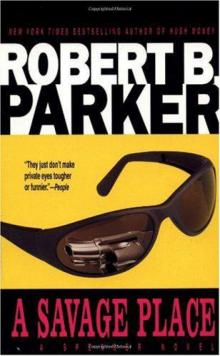 A Savage Place s-8
A Savage Place s-8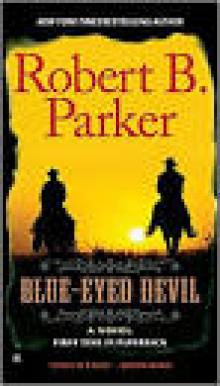 Appaloosa / Resolution / Brimstone / Blue-Eyed Devil
Appaloosa / Resolution / Brimstone / Blue-Eyed Devil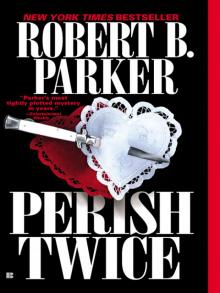 Perish Twice
Perish Twice Spare Change
Spare Change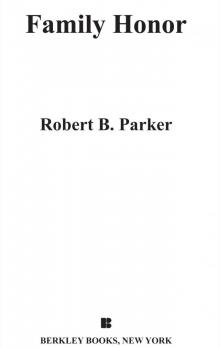 Family Honor
Family Honor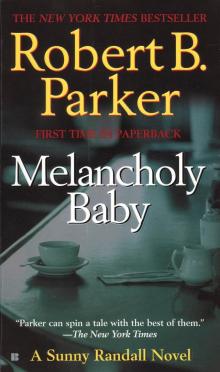 Melancholy Baby
Melancholy Baby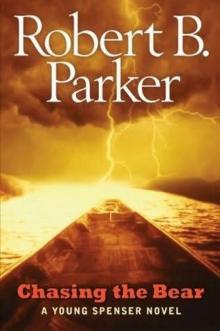 Chasing the Bear
Chasing the Bear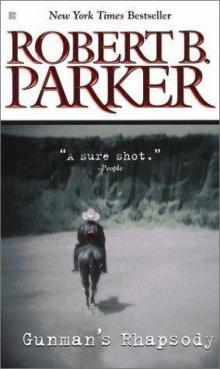 Gunman's Rhapsody
Gunman's Rhapsody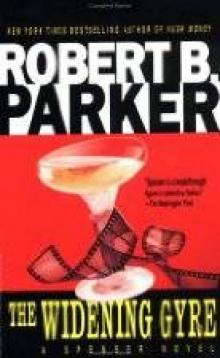 The Widening Gyre
The Widening Gyre Thin Air
Thin Air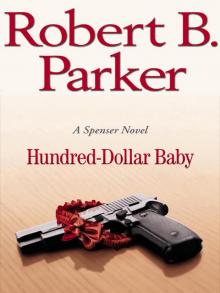 Hundred-Dollar Baby
Hundred-Dollar Baby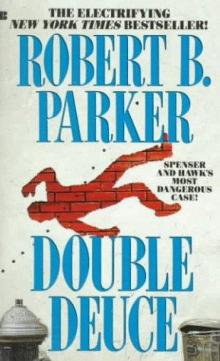 Double Deuce s-19
Double Deuce s-19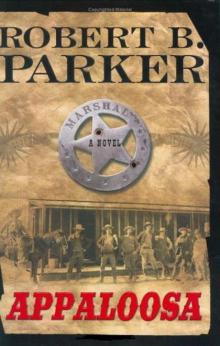 Appaloosa vcaeh-1
Appaloosa vcaeh-1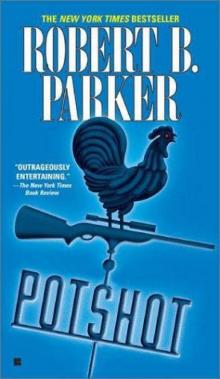 Potshot
Potshot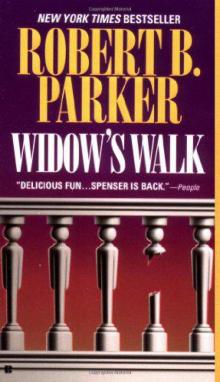 Widow’s Walk s-29
Widow’s Walk s-29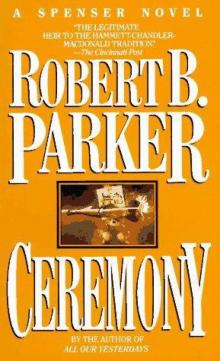 Ceremony s-9
Ceremony s-9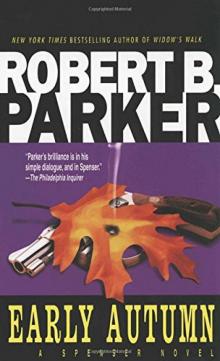 Early Autumn
Early Autumn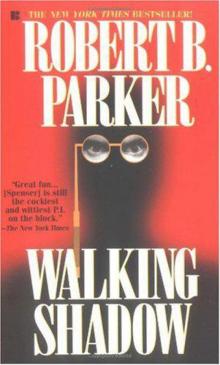 Walking Shadow s-21
Walking Shadow s-21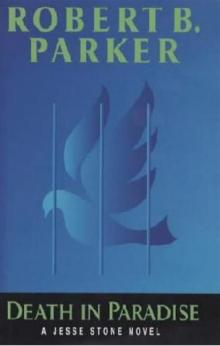 Death In Paradise js-3
Death In Paradise js-3 Shrink Rap
Shrink Rap Blue-Eyed Devil
Blue-Eyed Devil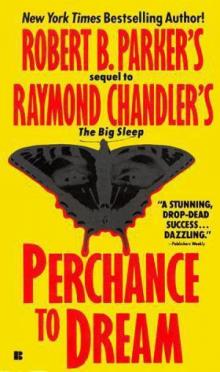 Perchance to Dream
Perchance to Dream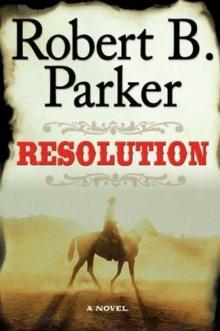 Resolution vcaeh-2
Resolution vcaeh-2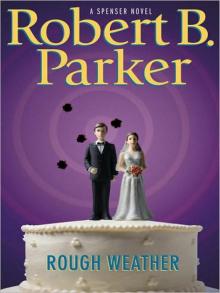 Rough Weather
Rough Weather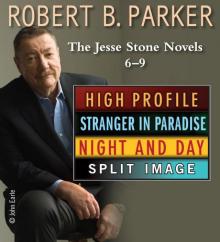 The Jesse Stone Novels 6-9
The Jesse Stone Novels 6-9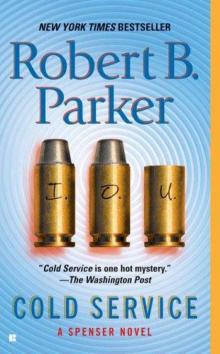 Cold Service s-32
Cold Service s-32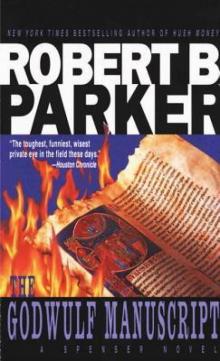 The Godwulf Manuscript
The Godwulf Manuscript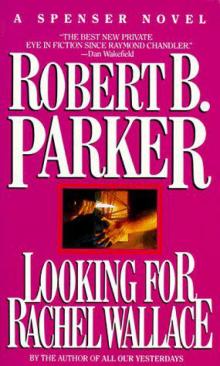 Looking for Rachel Wallace s-6
Looking for Rachel Wallace s-6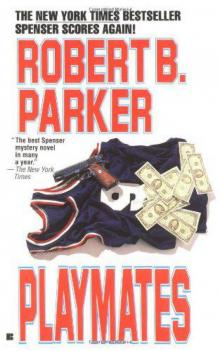 Playmates s-16
Playmates s-16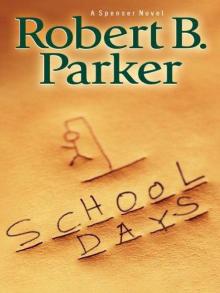 School Days s-33
School Days s-33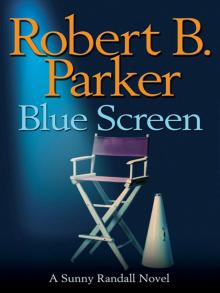 Blue Screen
Blue Screen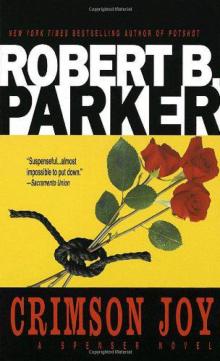 Crimson Joy
Crimson Joy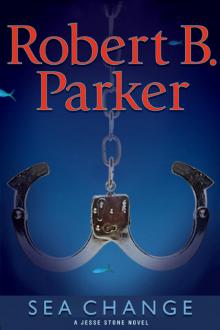 Sea Change js-5
Sea Change js-5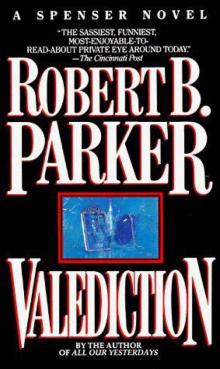 Valediction s-11
Valediction s-11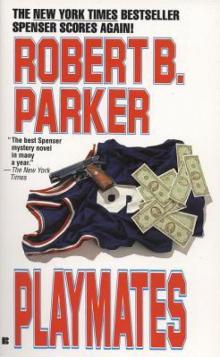 Playmates
Playmates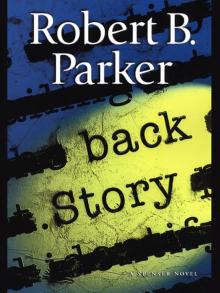 Back Story
Back Story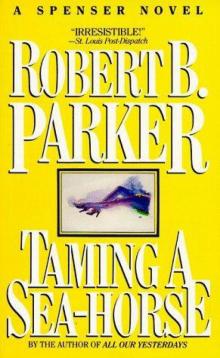 Taming a Sea Horse
Taming a Sea Horse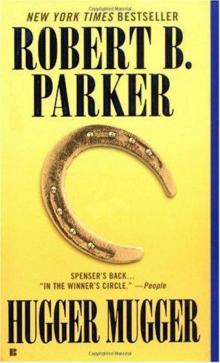 Hugger Mugger
Hugger Mugger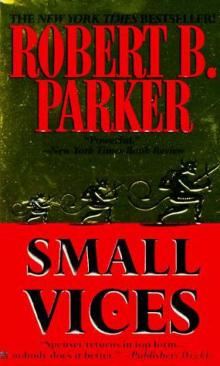 Small Vices s-24
Small Vices s-24 Silent Night: A Spenser Holiday Novel
Silent Night: A Spenser Holiday Novel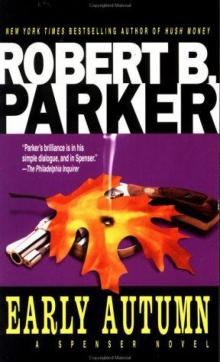 Early Autumn s-7
Early Autumn s-7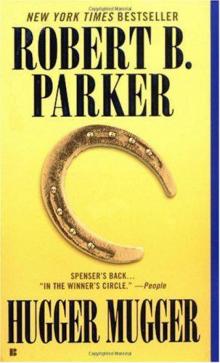 Hugger Mugger s-27
Hugger Mugger s-27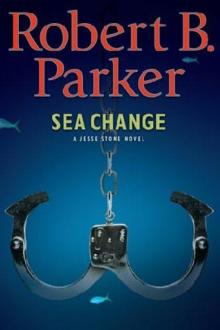 (5/10) Sea Change
(5/10) Sea Change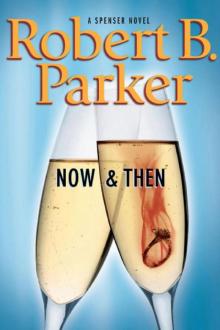 Now and Then
Now and Then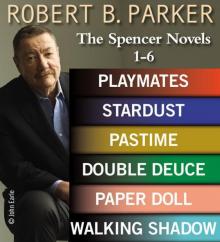 Robert B. Parker: The Spencer Novels 1?6
Robert B. Parker: The Spencer Novels 1?6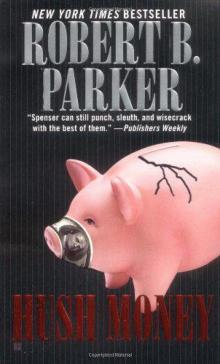 Hush Money s-26
Hush Money s-26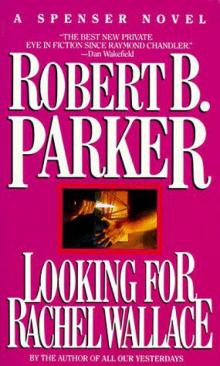 Looking for Rachel Wallace
Looking for Rachel Wallace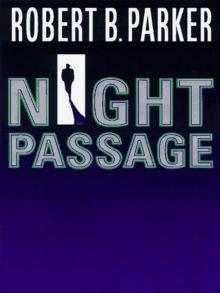 Night Passage
Night Passage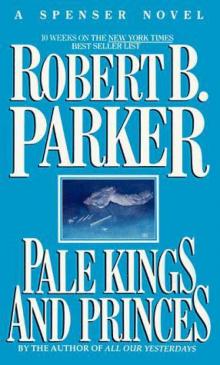 Pale Kings and Princes
Pale Kings and Princes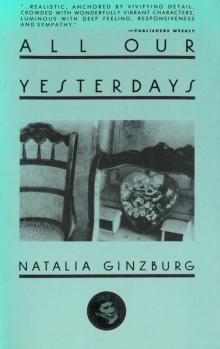 All Our Yesterdays
All Our Yesterdays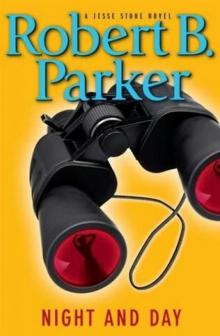 Night and Day js-8
Night and Day js-8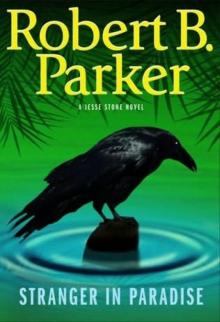 Stranger in Paradise js-7
Stranger in Paradise js-7 Double Play
Double Play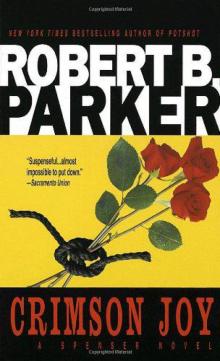 Crimson Joy s-15
Crimson Joy s-15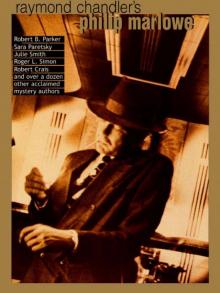 Raymond Chandler's Philip Marlowe
Raymond Chandler's Philip Marlowe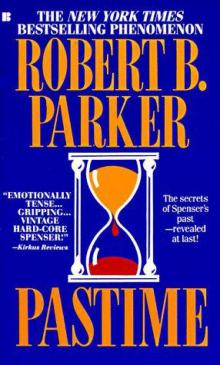 Pastime
Pastime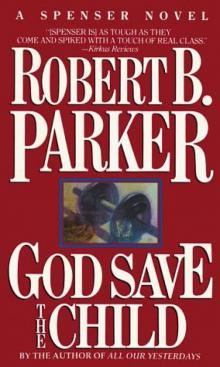 God Save the Child s-2
God Save the Child s-2 Bad Business
Bad Business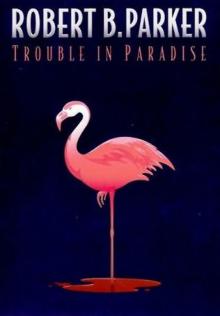 Trouble in Paradise js-2
Trouble in Paradise js-2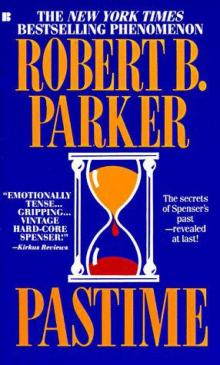 Pastime s-18
Pastime s-18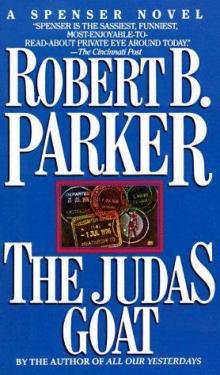 The Judas Goat s-5
The Judas Goat s-5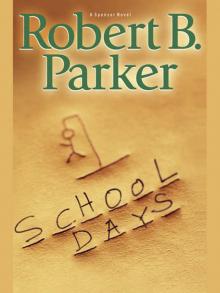 School Days
School Days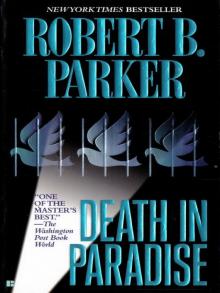 Death In Paradise
Death In Paradise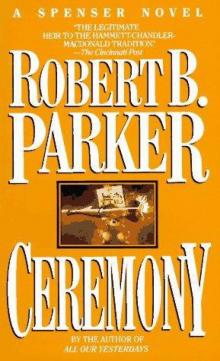 Ceremony
Ceremony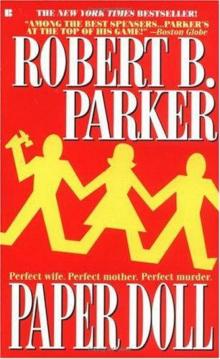 Paper Doll s-20
Paper Doll s-20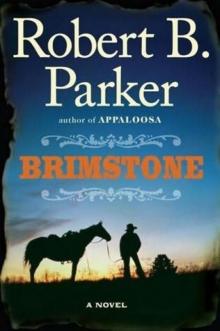 Brimstone vcaeh-3
Brimstone vcaeh-3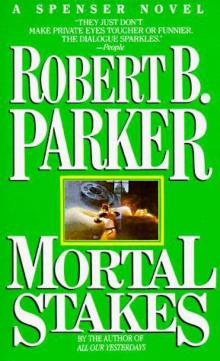 Mortal Stakes s-3
Mortal Stakes s-3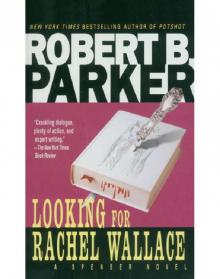 Spencer 06 - Looking for Rachel Wallace
Spencer 06 - Looking for Rachel Wallace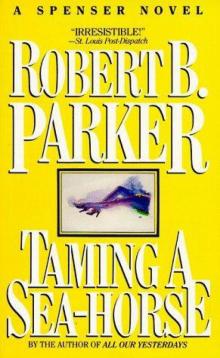 Taming a Sea Horse s-13
Taming a Sea Horse s-13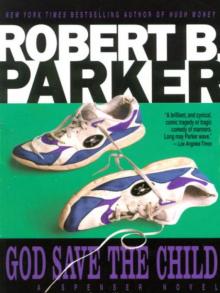 God Save the Child
God Save the Child Chance
Chance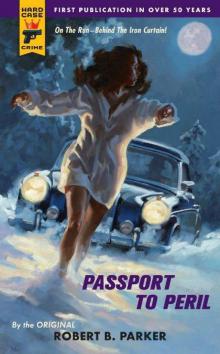 Passport To Peril hcc-57
Passport To Peril hcc-57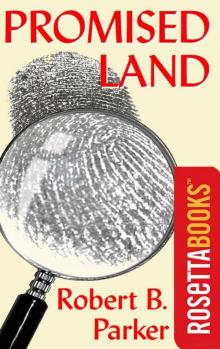 Promised Land
Promised Land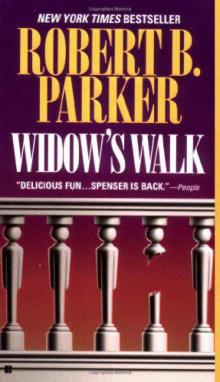 Widow’s Walk
Widow’s Walk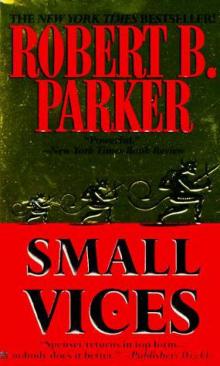 Small Vices
Small Vices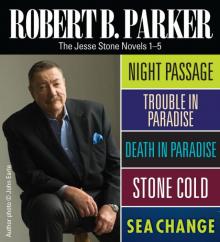 Robert B Parker: The Jesse Stone Novels 1-5
Robert B Parker: The Jesse Stone Novels 1-5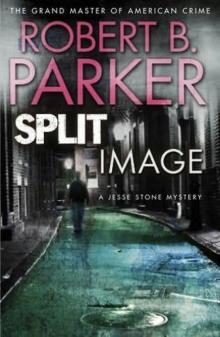 Split Image js-9
Split Image js-9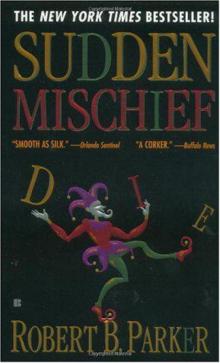 Sudden Mischief s-25
Sudden Mischief s-25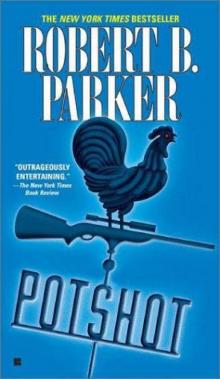 Potshot s-28
Potshot s-28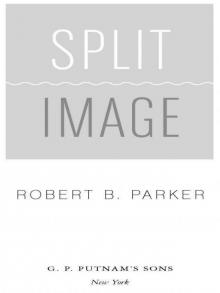 Split Image
Split Image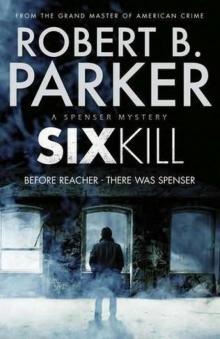 Sixkill s-40
Sixkill s-40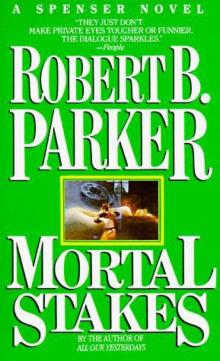 Mortal Stakes
Mortal Stakes Stardust
Stardust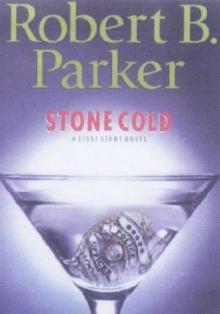 Stone Cold js-4
Stone Cold js-4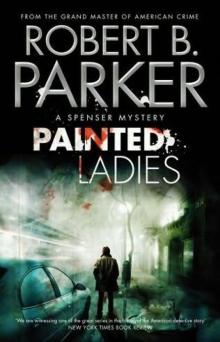 Painted Ladies s-39
Painted Ladies s-39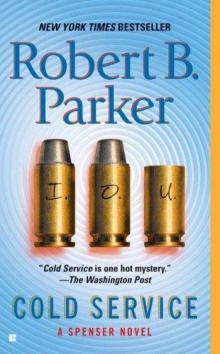 Cold Service
Cold Service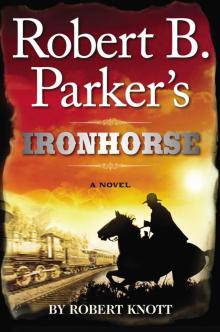 Ironhorse
Ironhorse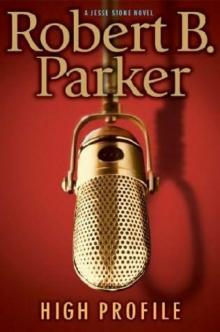 High Profile js-6
High Profile js-6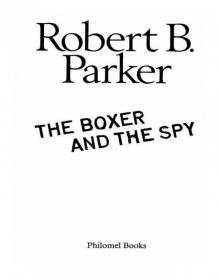 The Boxer and the Spy
The Boxer and the Spy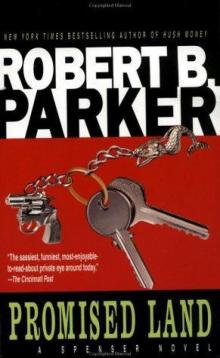 Promised Land s-4
Promised Land s-4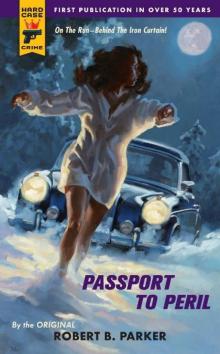 Passport to Peril (Hard Case Crime (Mass Market Paperback))
Passport to Peril (Hard Case Crime (Mass Market Paperback))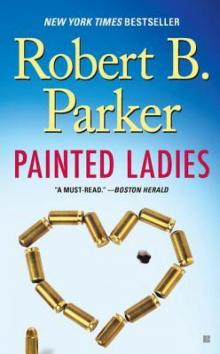 Painted Ladies
Painted Ladies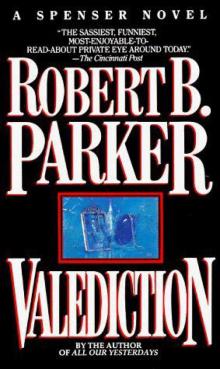 Valediction
Valediction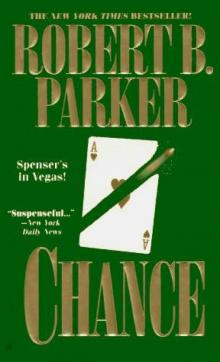 Chance s-23
Chance s-23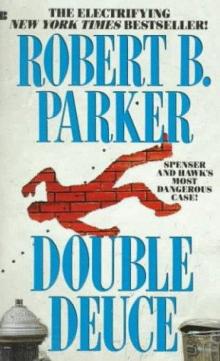 Double Deuce
Double Deuce Wilderness
Wilderness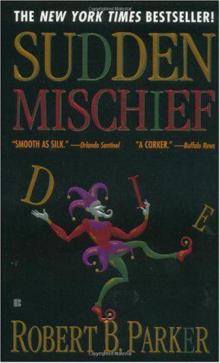 Sudden Mischief
Sudden Mischief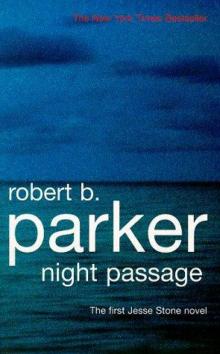 Night Passage js-1
Night Passage js-1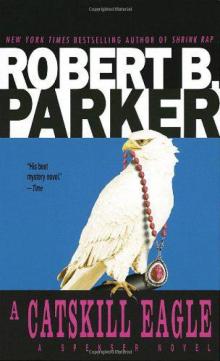 A Catskill Eagle
A Catskill Eagle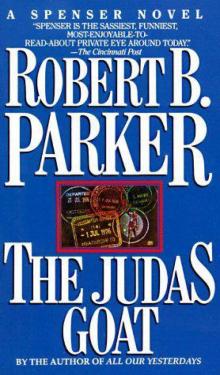 The Judas Goat
The Judas Goat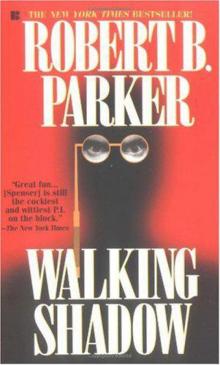 Walking Shadow
Walking Shadow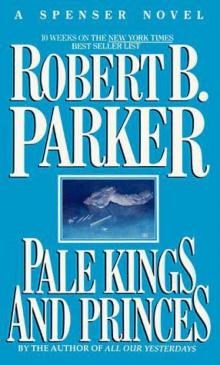 Pale Kings and Princes s-14
Pale Kings and Princes s-14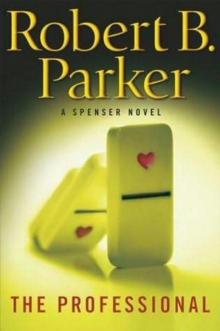 The Professional
The Professional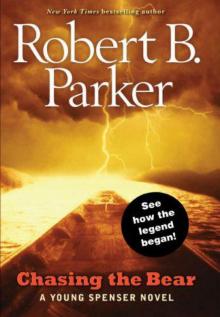 Chasing the Bear s-37
Chasing the Bear s-37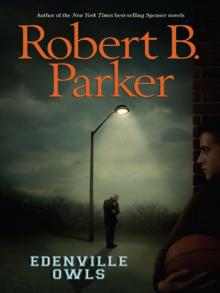 Edenville Owls
Edenville Owls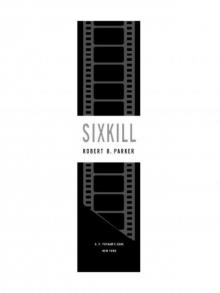 Sixkill
Sixkill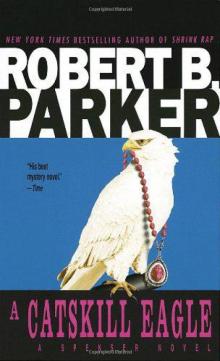 A Catskill Eagle s-12
A Catskill Eagle s-12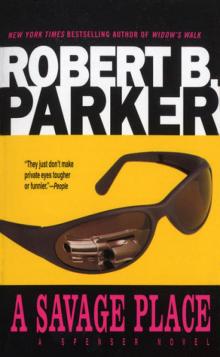 A Savage Place
A Savage Place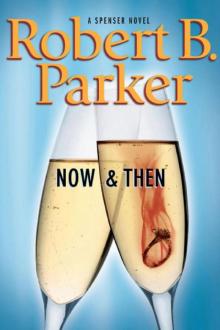 Now and Then s-35
Now and Then s-35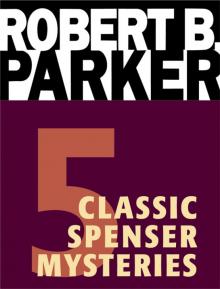 Five Classic Spenser Mysteries
Five Classic Spenser Mysteries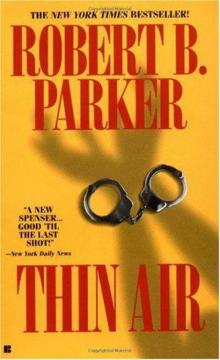 Thin Air s-22
Thin Air s-22